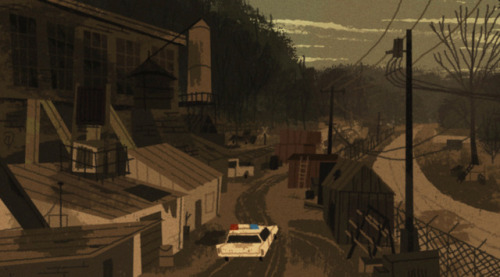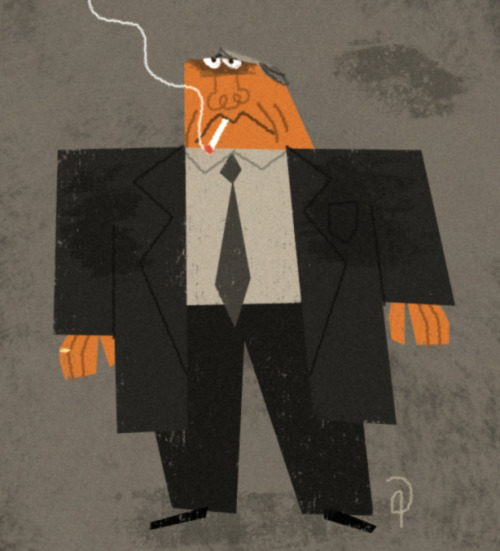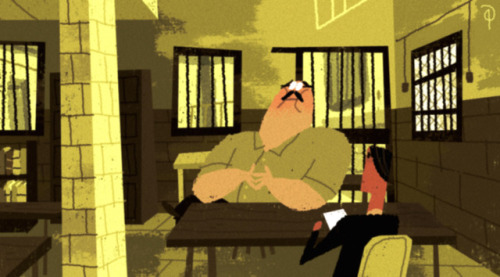#david fincher
Gone Girl Soundtrack Available Now
Buy now on iTunes - http://smarturl.it/GoneGirlSoundtrack
Direct MP3 / WAV / Lossless - http://smarturl.it/GoneGirlDigital
Preorder CD / Vinyl - http://smarturl.it/GoneGirlStore
Post link
Films I’ve Watched in 2020 (310/?)
Mank (2020)
dir. David Fincher
“You cannot capture a man’s life in two hours. All you can hope is to leave the impression of one.”
Post link
“She’s different.”
“In what way?”
“In every way.”
The Girl with the Dragon Tattoo (2011) dir. David Fincher
Post link
Now hold still. I’ve never done this before, and there will be blood.
The Girl with the Dragon Tattoo (2011) dir. David Fincher
Post link
Rooney Mara as Lisbeth Salander in
The Girl with the Dragon Tattoo (2011) dir. David Fincher
Post link
“It’s hard to believe that the fear of offending can be stronger than the fear of pain, but you know what? It is.”
The Girl with the Dragon Tattoo (2011) dir. David Fincher
Post link
Rooney Mara as Lisbeth Salander in
The Girl with the Dragon Tattoo (2011) dir. David Fincher
Post link
Daniel Craig as Mikael Blomkvist in
The Girl with the Dragon Tattoo (2011) dir. David Fincher
Post link
“I want you to help me catch a killer of women.”
The Girl with the Dragon Tattoo (2011) dir. David Fincher
Post link
Daniel Craig and Rooney Mara as Mikael and Lisbeth in
The Girl with the Dragon Tattoo (2011) dir. David Fincher
Post link
Rooney Mara as Lisbeth Salander in
The Girl with the Dragon Tattoo (2011) dir. David Fincher
Post link

“Just because you can’t prove it, doesn’t mean it’s not true”
Conversations about David Fincher always seem to follow the same pattern: “Fight Club’s good, isn’t it? Yeah, but Se7en’s probably better. You’re probably right, there, mate. What did you think of Alien3, by the way? I think it’s underrated, but it’s not exactly The Social Network, is it?”
And that’s it. There may be the occasional mention of The Curious Case of Benjamin ButtonorPanic Room, but no one ever mentions The GameorZodiac. While the first of these is certainly forgettable alongside many of Fincher’s other, more significant, films, the latter has been all but forgotten among the director’s extensive back-catalogue, which is strange considering that Zodiac is almost certainly his greatest achievement to date.
Based on the real-life serial killings in San Francisco of the late 60’s and 70’s, Zodiaclooks at the various attempts to solve the case by the police, the press, and a cartoonist who likes puzzles. As the years go by and the case remains unsolved, those involved in the investigation quietly, and obsessively, continue their search for the Zodiac killer.
In comparison to Fincher’s other films, Zodiac is certainly an anomaly – it’s not extravagant in the way a film like Fight Club was, and does more with the art of cinema than any film Fincher has ever made. Like Antonioni’s L’Avventura,Fincher and screenwriter James Vanderbilt have crafted a story in which the central narrative drive, in the case of L’Avventura this is the mystery of the woman’s disappearance, and in Zodiac it’s the mystery of the serial killer’s identity, disappears into the background. In Zodiac, the significance of solving the case is pushed to the back while Fincher examines how the case affects the lives of those embroiled in it.
This kind of storytelling is an incredibly rare thing, and to see David Fincher make a film like this, so elegant and subtle, and such a departure from his usual bombastic approach to filmmaking, only solidifies his status as one of the great American filmmakers working today.
The thing is, Zodiac will never be remembered as fondly as, say, Fight CluborSe7en, because it doesn’t have the same swagger or pomposity that won David Fincher legions of adoring fan(boy)s in the first place, which is a crying shame. What Zodiac does have, however, is one of the great stories of our time, as well as one of the most interesting uses of narrative form since L’Avventura. It’s also Fincher’s best film to date.
The phrase “criminally underrated” doesn’t even begin to cover it.

“I want you to help me catch a killer of women”
Cold and calculated; two words that could be used to label American director David Fincher, the man who made two of the great films of the past ten years, in ZodiacandThe Social Network, and the man who made Fight Club, one of the best films of all time. His latest project, an adaptation of Steig Larsson’s best-selling novel The Girl With The Dragon Tattoo, however, marks his first mis-step since 2008 – albeit a very slight one.
The Girl With The Dragon Tattoo follows Mikael Blomkvist, a disgraced journalist, as he investigates the murder of a Swedish businessman’s grand-niece with Lisbeth Salander, a prodigious computer hacker and investigator whose traumatic childhood has made her hostile to society. As the two investigate the murder, they stumble upon something far more sinister than they could have imagined.
If there’s a flaw in the film it’s in the character of Lisbeth Salander, a wildly exaggerated caricature of an outsider. Her black clothes, dramatic hairstyles, fuck you attitude and love for tattoos all make for a very stereotypical perception of what disillusioned youth looks like, and embodies everything that the middle aged middle class fear about young people. This is something that was unavoidable due to the heavy-handed nature of the character in Larsson’s novel, and is no reflection on Rooney Mara’s depiction of the character – she’s only doing what’s required and she does so very well – but Fincher seems to exaggerate it further, making Lisbeth wear a t-shirt emblazoned with the words “fuck you you fucking fuck”, for example. It’s unusually heavy-handed for Fincher, and something that occurs sporadically throughout the film. The rape scenes, for example, are unnecessary and gratuitous, and serve no other purpose than to hammer home what we already know - Lisbeth hates society as much as society hates her.
Still, it’s not all bad, and The Girl With The Dragon Tattoo is far better than its flaws suggest. The mystery at its centre is always fascinating, and Fincher’s meticulous visual style works wonderfully when transposed to snowbound Sweden. Of course, there are certainly going to be comparisons to the Swedish original as it’s so fresh in the mind, and, admittedly, much of the film feels familiar, but Fincher’s film feels more streamlined that Niels Arden Oplev’s original, and is certainly a far more rewarding experience.
It stands as testament to Fincher that even when he’s off his game he can make something so great, and, even in spite of its many flaws, The Girl With The Dragon Tattoo is an elegant, ferocious film that only enhances David Fincher’s reputation as one of Hollywood’s best working directors.

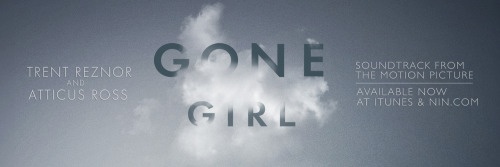




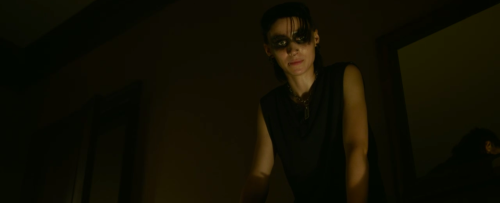


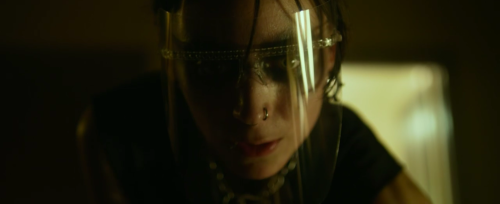

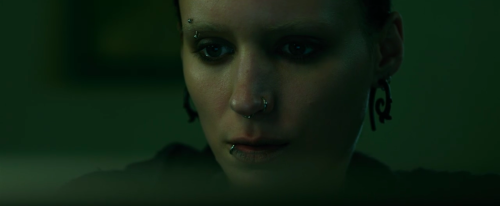
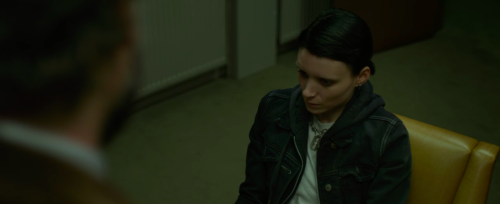
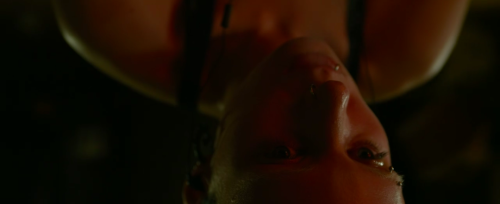
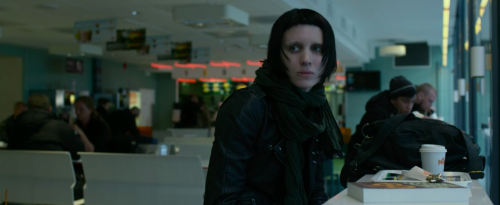

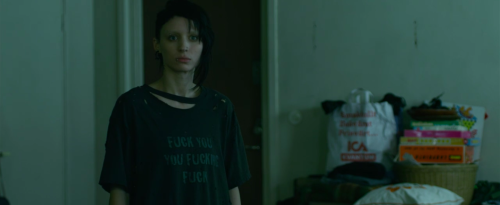
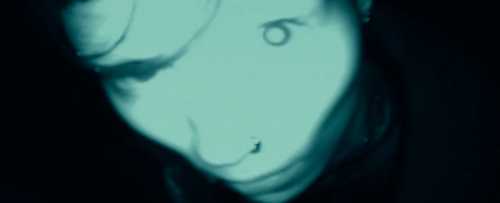
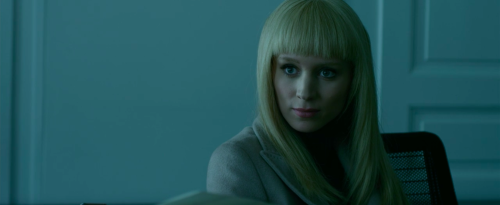


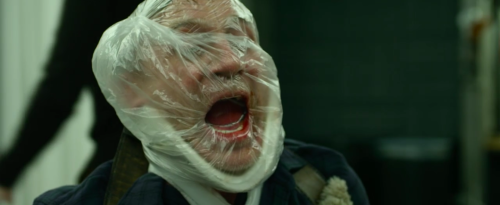







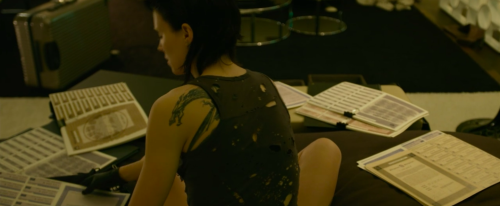

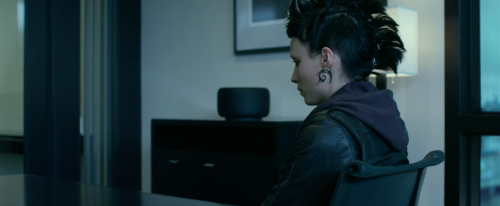
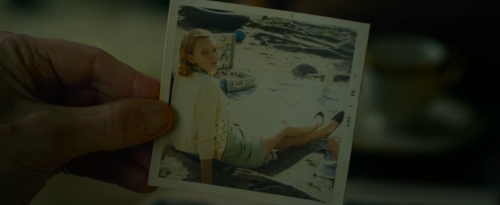
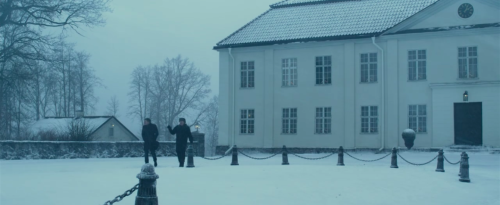




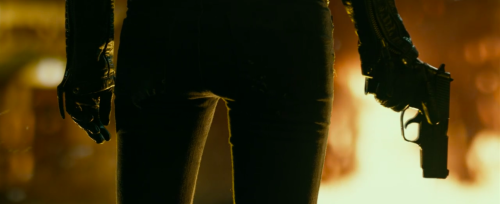
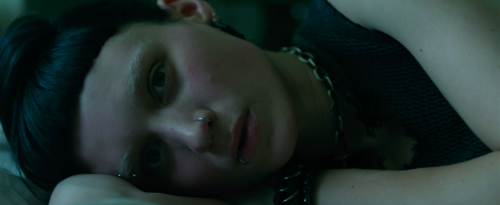
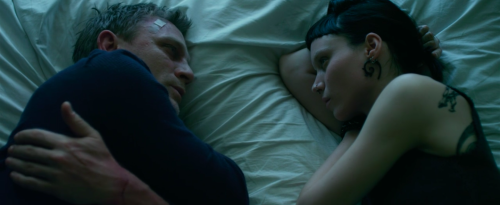










![Gone Girl [ 2014 ] Dir: David FincherDoP: Jeff Cronenweth Full post (60x 1080p screencaps) Gone Girl [ 2014 ] Dir: David FincherDoP: Jeff Cronenweth Full post (60x 1080p screencaps)](https://64.media.tumblr.com/d757fad9c5f34a8cca4e9a08649f82fa/tumblr_niwhuy2RJA1st09ivo1_500.png)
![Gone Girl [ 2014 ] Dir: David FincherDoP: Jeff Cronenweth Full post (60x 1080p screencaps) Gone Girl [ 2014 ] Dir: David FincherDoP: Jeff Cronenweth Full post (60x 1080p screencaps)](https://64.media.tumblr.com/338ef6e0b0201b5308a25890bf8475f2/tumblr_niwhuy2RJA1st09ivo2_500.png)
![Gone Girl [ 2014 ] Dir: David FincherDoP: Jeff Cronenweth Full post (60x 1080p screencaps) Gone Girl [ 2014 ] Dir: David FincherDoP: Jeff Cronenweth Full post (60x 1080p screencaps)](https://64.media.tumblr.com/178e341b4fd172d20041e177017add0a/tumblr_niwhuy2RJA1st09ivo3_500.png)
![Gone Girl [ 2014 ] Dir: David FincherDoP: Jeff Cronenweth Full post (60x 1080p screencaps) Gone Girl [ 2014 ] Dir: David FincherDoP: Jeff Cronenweth Full post (60x 1080p screencaps)](https://64.media.tumblr.com/0030e5c89ada04de35477f85863ba9c7/tumblr_niwhuy2RJA1st09ivo4_500.png)
![Gone Girl [ 2014 ] Dir: David FincherDoP: Jeff Cronenweth Full post (60x 1080p screencaps) Gone Girl [ 2014 ] Dir: David FincherDoP: Jeff Cronenweth Full post (60x 1080p screencaps)](https://64.media.tumblr.com/022d6ada1a94194bd171504c33ad2a02/tumblr_niwhuy2RJA1st09ivo5_500.png)
![Gone Girl [ 2014 ] Dir: David FincherDoP: Jeff Cronenweth Full post (60x 1080p screencaps) Gone Girl [ 2014 ] Dir: David FincherDoP: Jeff Cronenweth Full post (60x 1080p screencaps)](https://64.media.tumblr.com/6725965037b4338ca23de47ce0a6827c/tumblr_niwhuy2RJA1st09ivo6_500.png)
![Gone Girl [ 2014 ] Dir: David FincherDoP: Jeff Cronenweth Full post (60x 1080p screencaps) Gone Girl [ 2014 ] Dir: David FincherDoP: Jeff Cronenweth Full post (60x 1080p screencaps)](https://64.media.tumblr.com/cff79dcd297266c29d140aa3cb473f80/tumblr_niwhuy2RJA1st09ivo7_500.png)
![Gone Girl [ 2014 ] Dir: David FincherDoP: Jeff Cronenweth Full post (60x 1080p screencaps) Gone Girl [ 2014 ] Dir: David FincherDoP: Jeff Cronenweth Full post (60x 1080p screencaps)](https://64.media.tumblr.com/b6f00fc290983be1433d060254baf183/tumblr_niwhuy2RJA1st09ivo8_500.png)
![Gone Girl [ 2014 ] Dir: David FincherDoP: Jeff Cronenweth Full post (60x 1080p screencaps) Gone Girl [ 2014 ] Dir: David FincherDoP: Jeff Cronenweth Full post (60x 1080p screencaps)](https://64.media.tumblr.com/907f32e5dfa241776c29ce183fae3862/tumblr_niwhuy2RJA1st09ivo9_500.png)
![Gone Girl [ 2014 ] Dir: David FincherDoP: Jeff Cronenweth Full post (60x 1080p screencaps) Gone Girl [ 2014 ] Dir: David FincherDoP: Jeff Cronenweth Full post (60x 1080p screencaps)](https://64.media.tumblr.com/18a88e2fdbf165292b57a364c6d8e33a/tumblr_niwhuy2RJA1st09ivo10_500.png)
